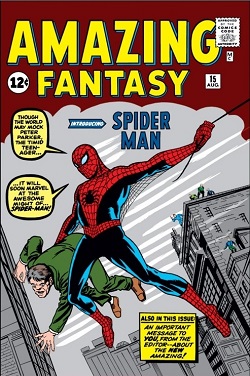Being In Charge Doesn’t Make You A Leader
Body
“Great leaders are humble, know how to inspire and lead their team, and are prepared to take responsibility—whether it’s their fault or not.” - Phil Cooke
As iron sharpens iron,
one person sharpens another. (Proverbs 27:17)
“Great leaders are humble, know how to inspire and lead their team, and are prepared to take responsibility—whether it’s their fault or not.” - Phil Cooke
“…the view that your choices have a real impact on your life, tends to predict socioeconomic success. The opposite is also true: When someone views themselves as mainly a victim of things beyond their control, it often becomes a self-fulfilling prophecy.” - Breakpoint
“Do we share some responsibility for the sins committed by those who were part of the same immediate family? What about the same religious family? Or what if the perpetrators in the past shared our same skin color? In short, how should we think of corporate responsibility?” - Kevin DeYoung
“It’s not ‘lived experience’ getting erased in the students’ minds. It’s the obvious difference between assigning blame for an act already committed and forestalling an act that might be avoided. Could it be that some victims and their advocates are not merely camping out on victimhood, but identifying as victims?” - Janie Cheaney
One simple premise undergirds the ideas that either humanity has free volition or that God is sovereign, and that ultimately the two concepts are mutually exclusive. That premise is the hinge upon which the argument turns, favoring either human freedom or Divine sovereignty. Montague Brown illustrates the premise with the following statement:
“The issue of free choice also plays a critical role in that other vexed philosophical puzzle—the problem of evil. For if we do not have free choice, we are not to be blamed or praised for our actions; rather, it is all God’s doing. God becomes responsible for moral evil, either by causing it Himself or by punishing us who are not responsible for it.”1
We can formalize Brown’s statement as follows:
 The story has almost attained myth status in our culture. Brainy, often-bullied, tragically-parentless adolescent has accidental encounter with dangerously powerful lab experiment. Bitten by an unnaturally fortified spider, he soon begins to develop spider-like qualities himself. He discovers that he has faster-than-human reflexes, can climb walls, and can do amazing things with webs. (Fortunately for him, compound eyes, extra limbs, and complicated new mouth parts are not part of the package.)
The story has almost attained myth status in our culture. Brainy, often-bullied, tragically-parentless adolescent has accidental encounter with dangerously powerful lab experiment. Bitten by an unnaturally fortified spider, he soon begins to develop spider-like qualities himself. He discovers that he has faster-than-human reflexes, can climb walls, and can do amazing things with webs. (Fortunately for him, compound eyes, extra limbs, and complicated new mouth parts are not part of the package.)
The youth struggles to come to terms with his new-found abilities and how his life must change. In most versions of the story, he has a conversation with his foster father, Uncle Ben, who delivers the famous aphorism: “With great power comes great responsibility.”
The good uncle was almost right.
The voice of wisdom in the tale correctly recognized that power and responsibility go together. And certainly when individuals come upon power unexpectedly they ought to ponder what responsibilities they must also have. But by putting power first, Uncle Ben expressed a popular misunderstanding—a reversal of the actual order of things. And because we are so prone to be confused about power, the difference is important. Scripture reveals that responsibility comes first, and then power. And this is true for power in the sense of ability as well as power in the sense of authority.
Discussion